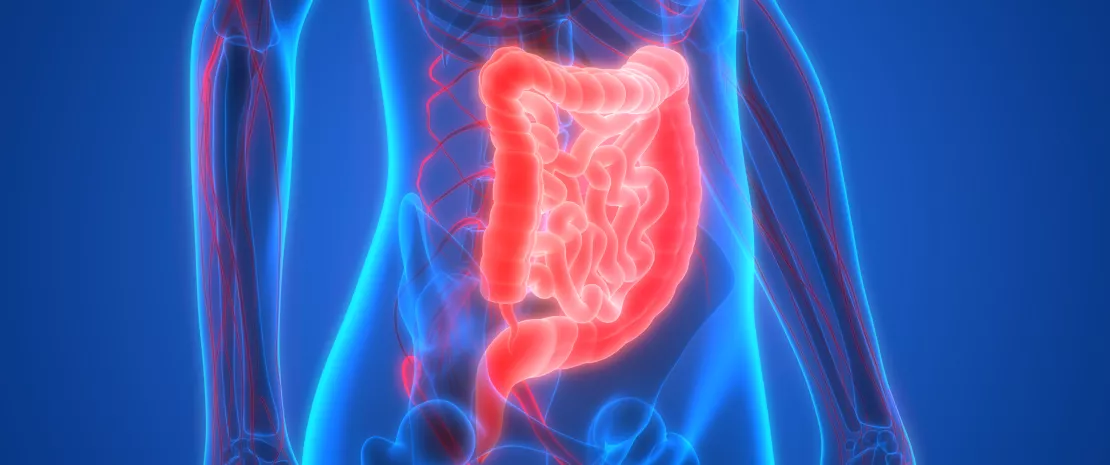Crohn’s disease: is the ileal microbiota a predictive factor of recurrence?
Using the gut microbiota to predict postoperative recurrence in Crohn’s disease: such is the possibility raised by a French study conducted in patients who underwent bowel resection.
Lay public section
Find here your dedicated section
Sources
This article is based on scientific information

About this article
While 50 to 75% of patients with Crohn’s disease will require at least one bowel resection during their lifetime, recurrence is observed in about 50% of them in the 5 years following their operation. Endoscopy is the gold-standard method to diagnose relapse. However, it can only be carried out a few months after the operation, thus delaying a potentially necessary early therapeutic intervention. The identification of early predictive factors of recurrence is thus of major interest.
Persistent dysbiosis
According to a multicenter study published in Gut and headed by Pr. Harry Sokol’s team, the microbiota present in the ileal mucosa could very well be one of these factors. To reach this conclusion, the researchers analyzed the composition of the microbiota extracted during bowel resection surgery (Tr), and later during follow-up endoscopy (Ts), in 201 patients. Result? Bowel resection caused a significant change in the microbiota in all patients and an improvement of the initial dysbiosis, but its effects were less pronounced in those who were relapsing. In the latter, between Tr and Ts, there was a decrease of alpha diversity, a more significant increase of several species from the Alphaproteobacteria class, and a lesser increase in some species from the Firmicutes phylum and the Lachnospiraceae and Ruminococcaceae families, which are believed to be markers of intestinal health.
Using the microbiota to predict recurrence
In modeling studies (some models take into account the factors modulating the recurrence risk: previous resection, tobacco use, male gender are aggravating factors while (sidenote: anti-TNF (Tumor Necrosis Factor) drugs are used to control inflammation. ) use is a protective factor), the researchers went further by identifying several taxa that are overabundant during the resection and that could be significant recurrence markers, especially bacteria from the Gammaproteobacteria class, Ruminococcus gnavus group and Corynebacterium genus. Despite some limitations, this study suggests that the composition of the microbiota at the time of bowel resection could predict recurrence and steer the postoperative therapeutic approach. There are however obstacles to the implementation of such an approach, especially the frequent preoperative use of antibiotics, which alter the microbiota and jeopardize its use as a predictive tool.






